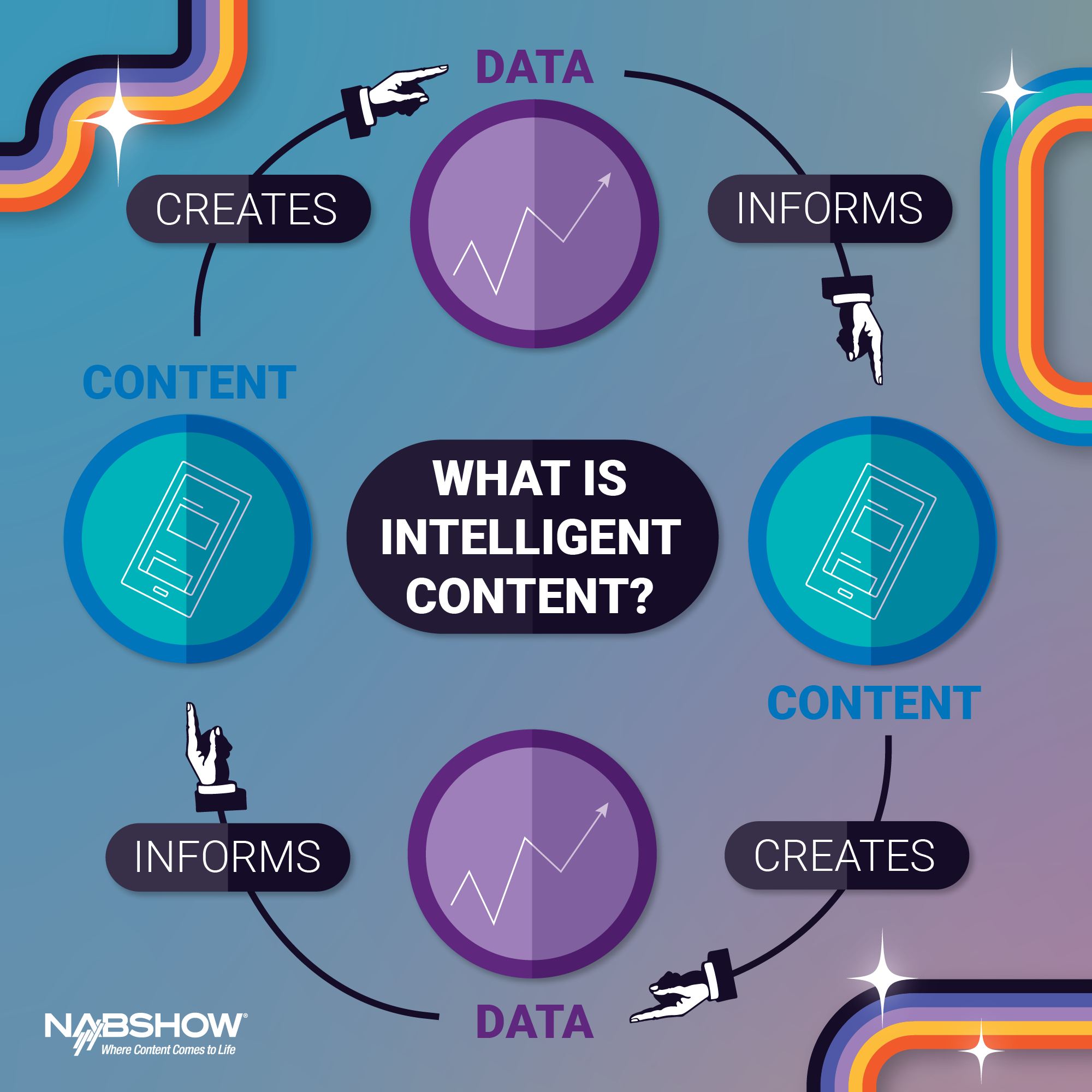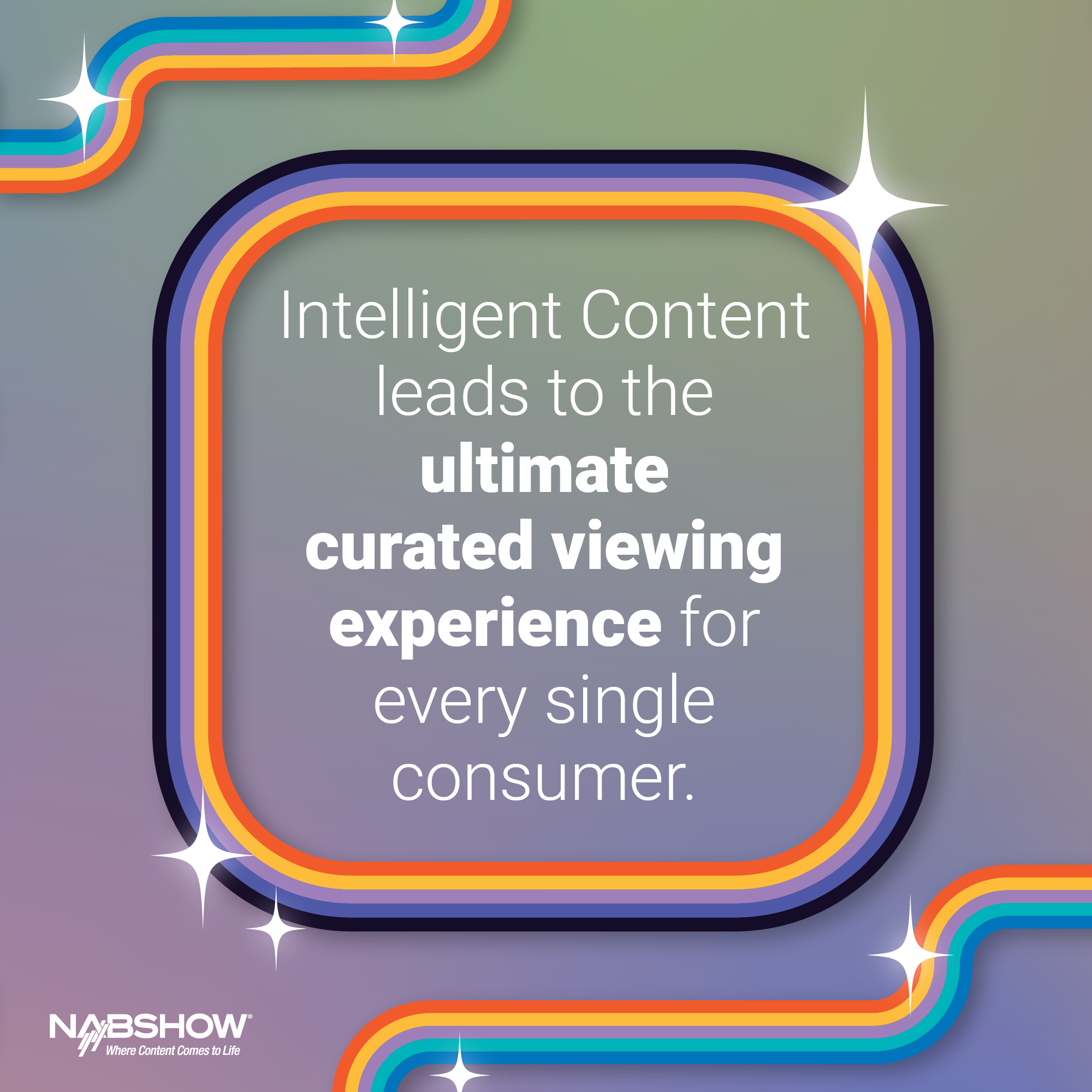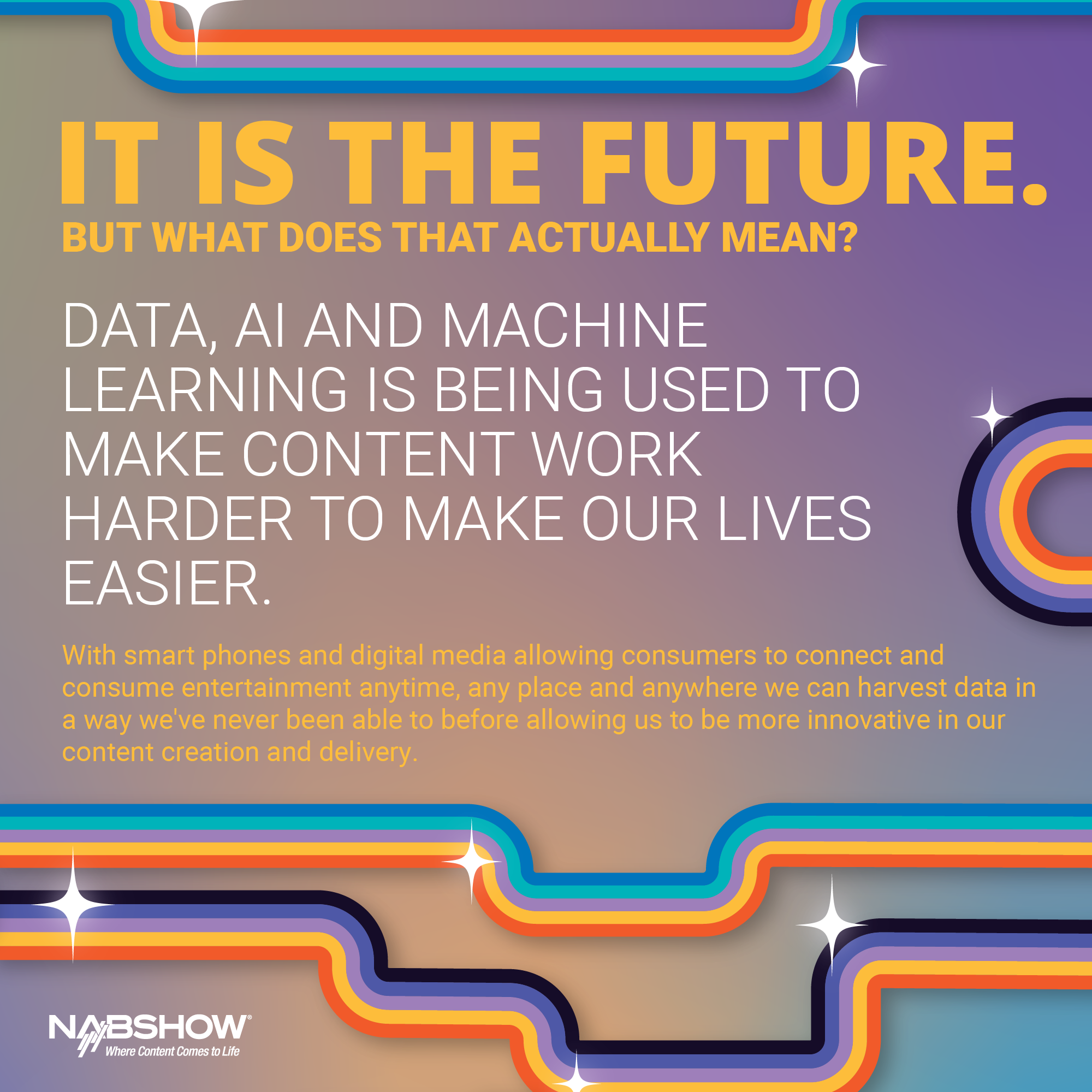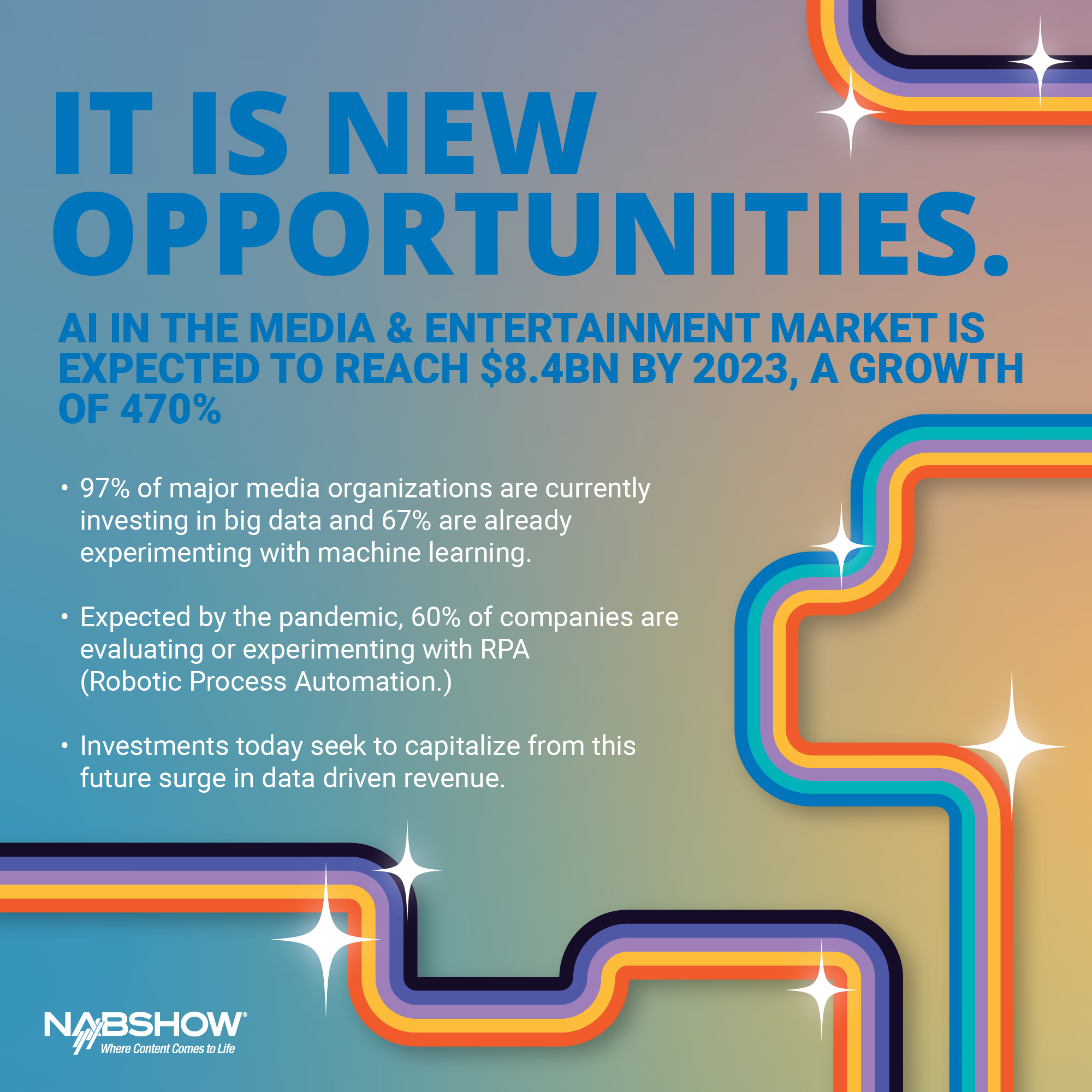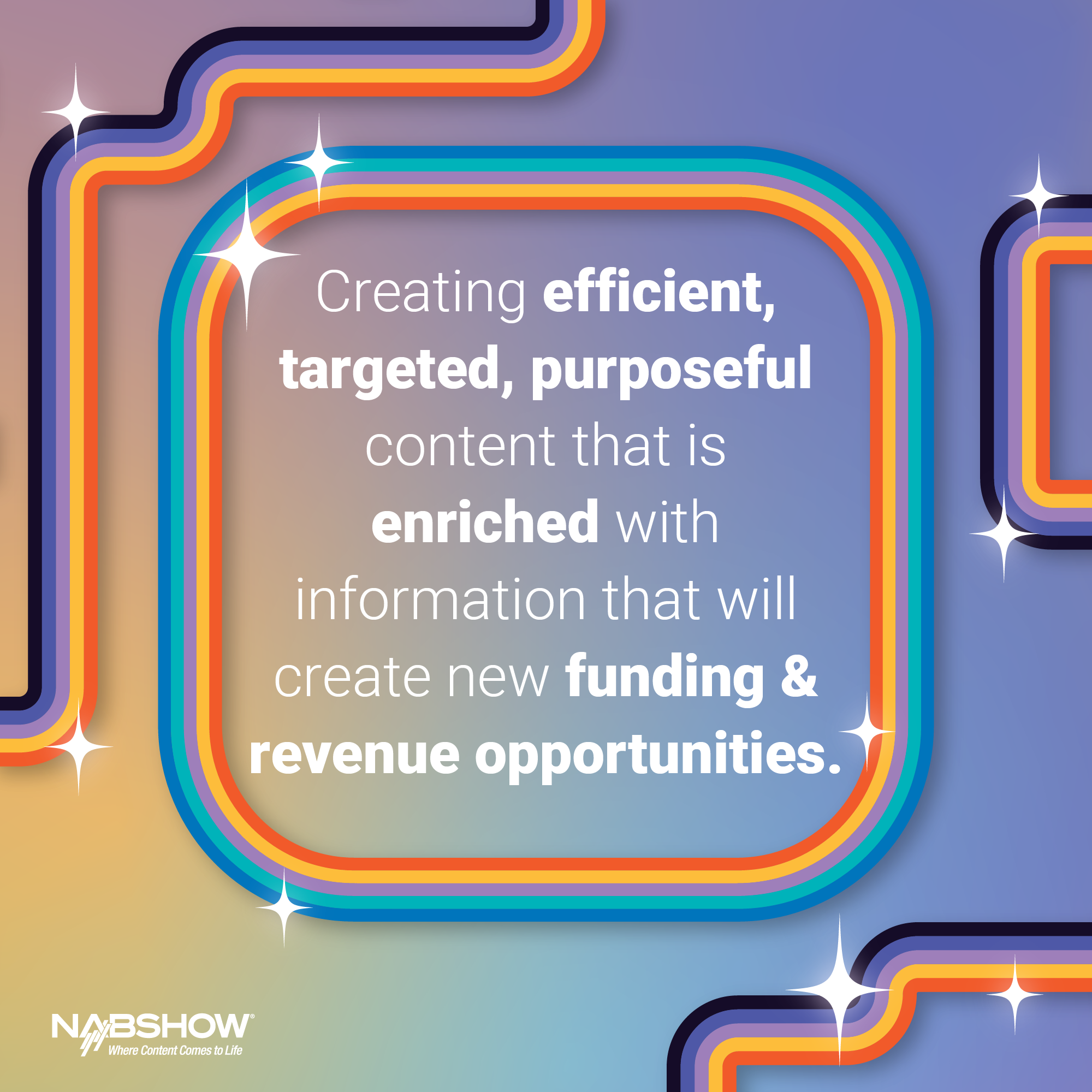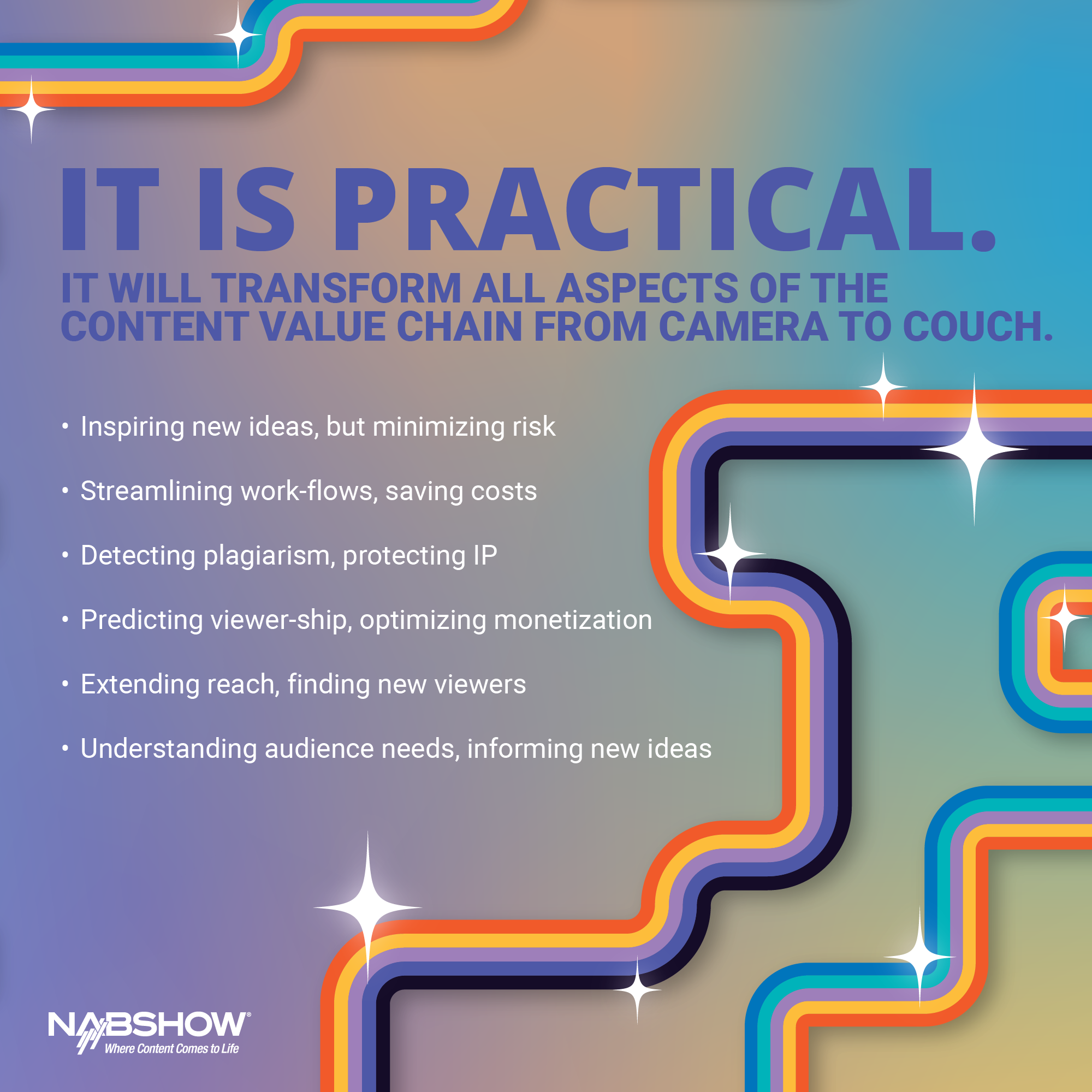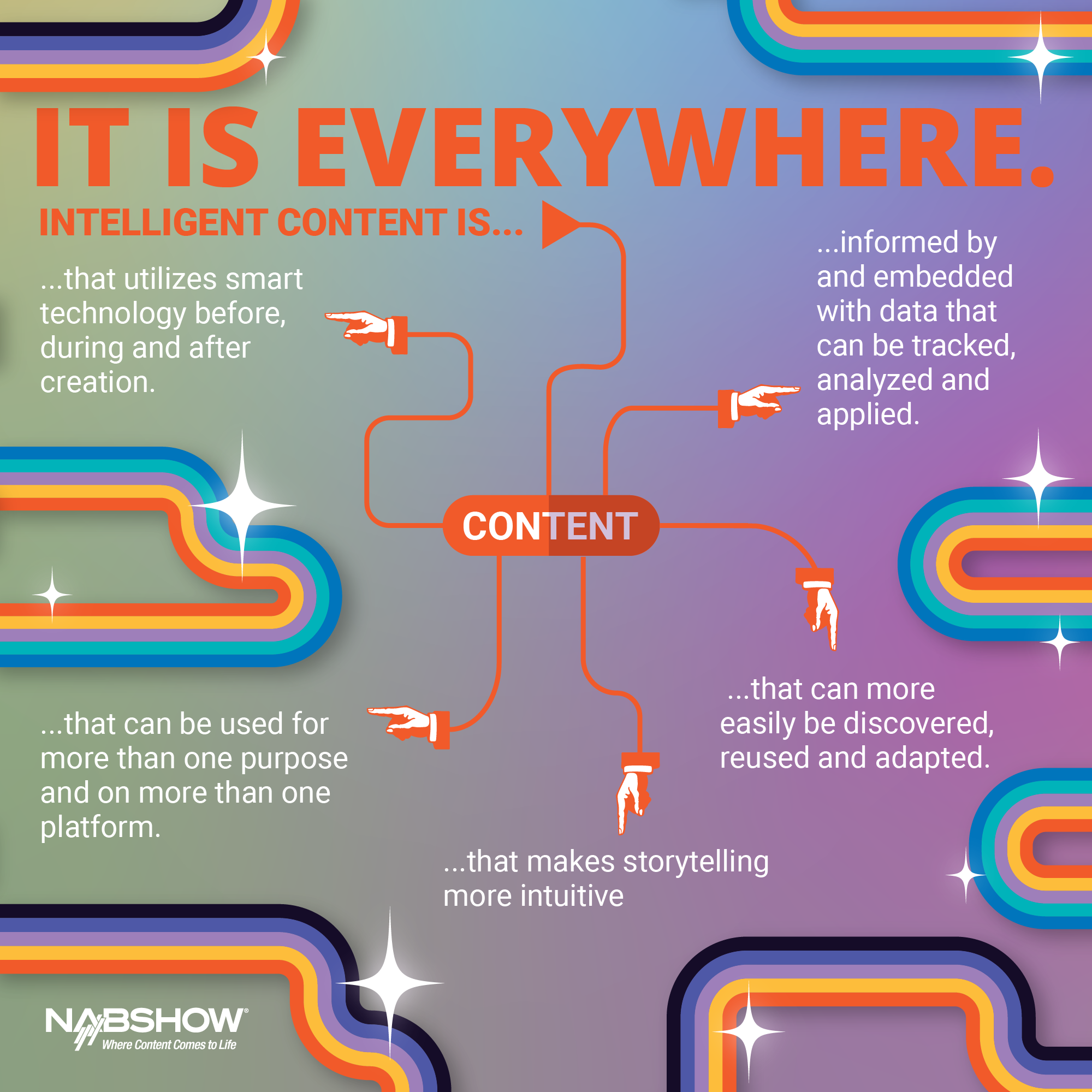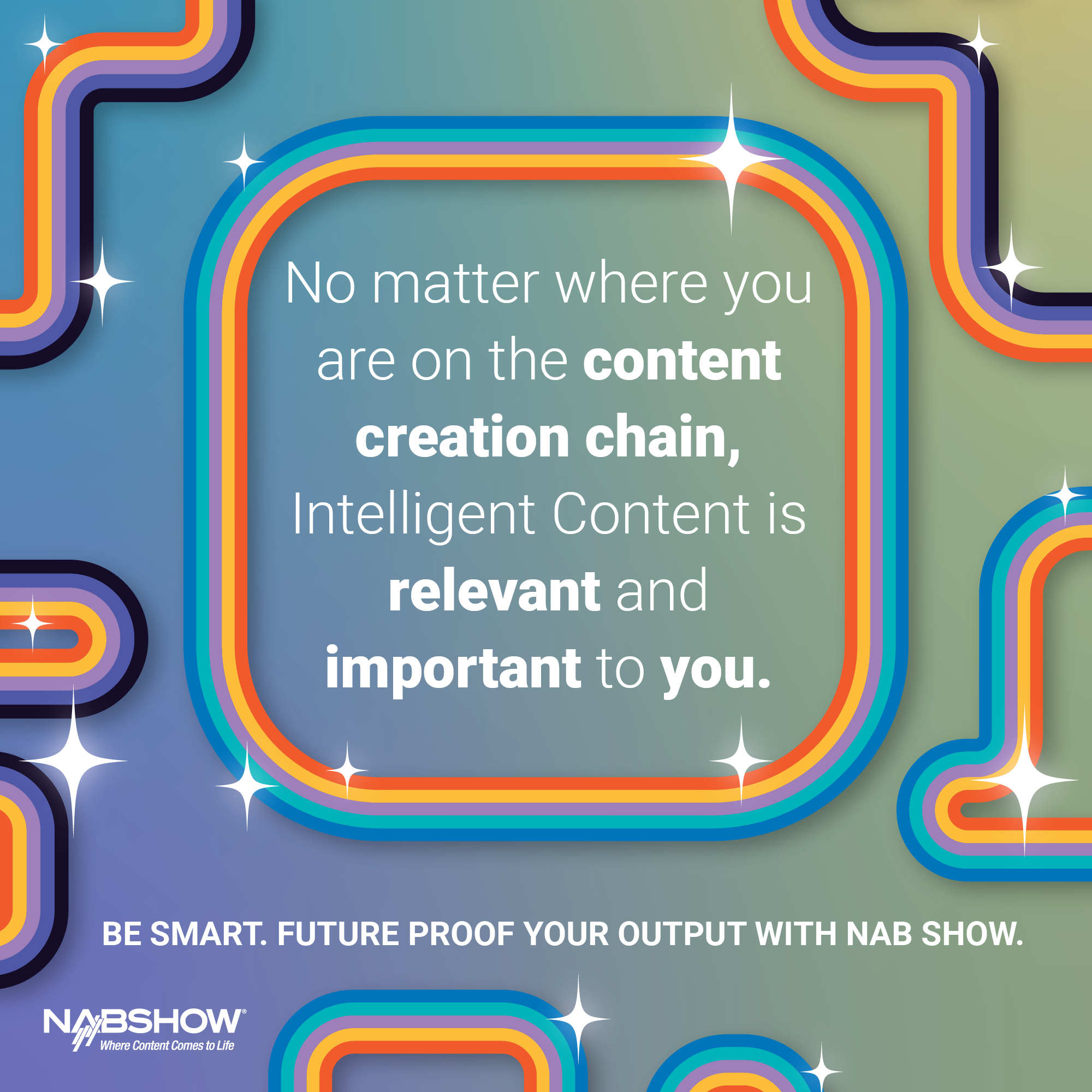The media and entertainment industry cannot afford to be constrained by conventional ideas, and intelligent content will help creators break outside the box. The way we make, deliver and consume content has changed beyond all recognition over the past 10 years and shows no sign of deceleration. We need to adapt, adopt and adjust our thinking to embrace these changes.
What is intelligent content? It is content designed to be used for multiple purposes and on multiple platforms or technology. It’s media that is rich with data and metadata enabling us to find, reuse and adapt it. Additionally, the content itself has been informed by data and will generate more data. Intelligent content works harder to make your life easier. It is content created with and sometimes by modern technologies.
(If you missed it, here is what intelligent content means to us, including a useful infographic that further breaks down the definition.)
The idea of intelligent content — including A.I., automation, machine learning, data, smart technology — is familiar to us. It has been inspiring media content – films, TV shows, video games – for a long time, both as retellings of factual stories and as an area ripe for fiction. Science fiction has been warning us for years that technology will take over the world and render us unnecessary (or even kill us all). But subtler, less apocalyptic examinations about what it all might mean have appeared more recently, demonstrating that we are hungry to understand and play with these notions in our storytelling.
Here’s some examples of how this fascination has spawned some great movies, and here are some TV series that explore similar themes.
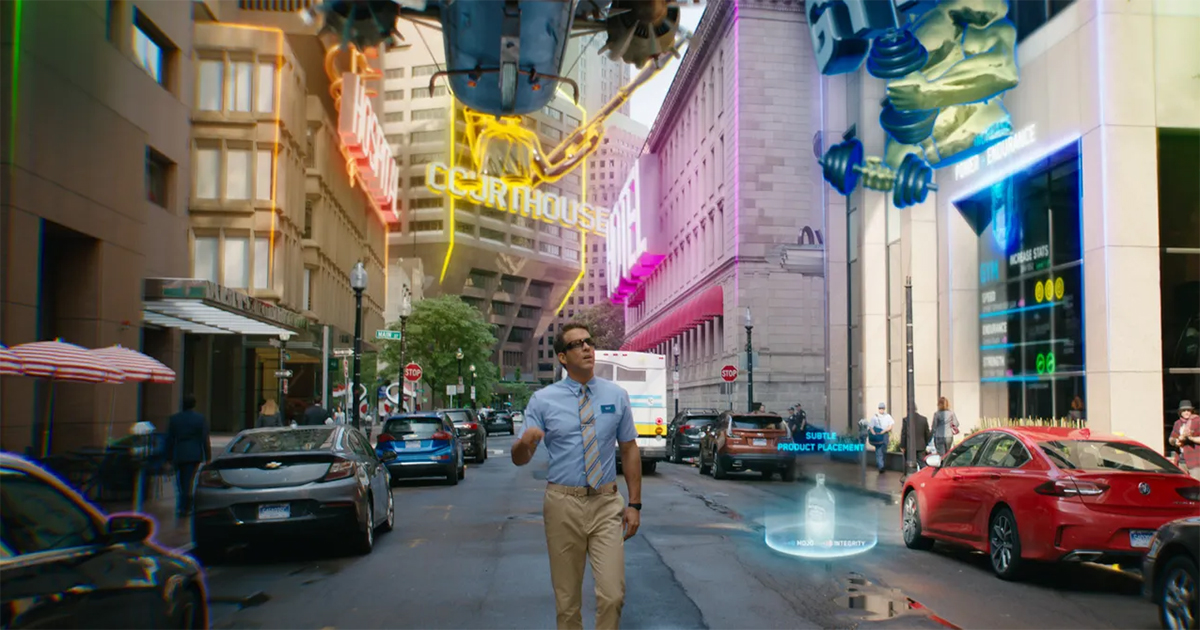
The recent movie “Free Guy” (starring Ryan Reynolds) plays with the notion of a NPC (non-playable character) in a video game achieving consciousness via some glitch in the code. It brings gaming, intelligent content and blockbuster Hollywood movies together in one slick, and very entertaining, whole. Could this situation become reality? Not yet, but this article highlights how A.I. and other tech developments are helping us to make leaps and bounds in creative innovation.
An earlier example is Charlie Brooker’s Netflix show “Black Mirror: Bandersnatch.” Released at the end of December 2018, it allowed viewers to “choose their own adventure” and has also features game development at the core of its story. But it’s not just a story about new technology, it also embraced new technology by harvesting data from the choices viewers made. Truly meta.
In fact, Netflix helped pave the way for intelligent content and changed the game for all of us, specifically using Big Data to gather information on our viewing habits, which then informs decisions on what content to make and buy.
Here’s a breakdown of Big Data, including a brief history, to help you understand how it fits into the bigger picture surrounding intelligent content.
And here’s a Netflix rabbit hole for you to go down…
- This article looks at “Bandersnatch” and discusses how it mined its viewers’ choices for even more data.
- Case study – a retrospective look at how Netflix used data in the creation of “House of Cards.”
- “Squid Game’s” success was no accident. Here are lessons you can learn for your own projects from the hugely popular global hit.
- Netflix tells us how they use tech to support their content decisions.
- And an interesting analysis of who’s watching what on Netflix.

How exactly can intelligent content help us when coming up with ideas?
In a nutshell, it can help us to analyze our audiences and understand why they engage or disengage. This can help us work out what kind of content to create, what kind of content is more likely to be consumed and then predict how successful it will be, which can lead risk-averse commissioners and producers to take more leaps and push the envelope.
Why not go down this analyze and predict-themed rabbit hole to discover more…
- Warner Bros is using A.I. and data to predict future hits. What does that mean for getting ideas greenlit?
- The BBC experimented with allowing A.I. to analyze its BBC4 output and then scheduled an evening of entertainment and new archive compilations based on its findings. Could this be the future of scheduling and re-using content?
- Here’s a comprehensive look at how data can revolutionize the film industry.
- What’s the future of data science? Find out in six parts.
- Big Data and Hollywood = a love story. Discover how the movie industry is experimenting with predictive analytics and creativity.
- Data analysis can aid creativity in the film industry. How?
- Analytics are helping the gaming industry.
- How A.I. and data analysis helped copywriters to create a successful “curveball” slogan.
It can help us create through practical applications like taking on mundane but necessary tasks, leaving creatives free to do the important things like, well, creating. But can also help us with brainstorming, to break through creative blocks or guide us in unexpected directions leading us to innovate in previously unthought of ways.
Take a deep dive down this create and innovate rabbit hole to find out more…
- This video from 2019 tells us how writers have already begun to change their habits to attract streaming audiences.
- Machines and A.I. in particular are being used in increasingly creative ways. But can tech ever be truly creative?
- Here’s why writers don’t need to worry about robots taking over their jobs.
- Some people have made movies using A.I. scriptwriters. Is there really a future for bot-written screenplays?
- Take a look at how A.I. can help with brainstorming.
- A.I. is helping musicians to get creative and encourage everyone to try their hands at making tunes. But could A.I. become more creative than humans?
- Discover how this game is using intelligent content to move gaming storytelling in an exciting way. What does this mean for the way we will play games in the future?
It’s clear that data can inform the inception of ideas through analytics and other information paths, leading to better innovation — which leads to better content and ultimately circles back into better data. And the cycle starts again.
BOOST YOUR BOTTOM LINE WITH INTELLIGENT CONTENT:
What is intelligent content? Designed to be used for multiple purposes across multiple platforms and technologies, intelligent content is media that is rich with data and metadata, enabling us to find, reuse and endlessly adapt it. Learn how intelligent content can boost your bottom line with these expert insights curated from the NAB Amplify archives:
- Your Business in 2025 is Data-Driven, Right? (Right?)
- Smaller, Smarter Data Needed to Train and Scale AI
- Intelligent Content Creation Inspires, Accelerates, Energizes — and Cuts Costs
- Watch This: How Intelligent Content Advances Creativity
- Learn How Data, AI and Automation Will Shape Your Future
SOME CONCLUSIONS ABOUT INTELLIGENT CONTENT
We should embrace the often “wild card thinking” generated by A.I. and other technologies and use it to take our creativity to whole new levels. Rather than putting creators out of jobs, harnessing intelligent content can help us to become more in tune with our audiences and understand what really connects people to our stories – no matter what genre, what type, what form or shape they take. Technology can free us from mundane but necessary tasks and give us more time to concentrate on the important stuff.
The fact that these new tools are enabling more and more people to create their own content shouldn’t be seen as a threat. It’s opening us all up to experiences, ideas and points of view that we may never have encountered before, which can only make our storytelling more rich and diverse.
As creatives, we have a chance to work together with technology and science to produce innovative content and new ways of working that are beneficial to everyone, no matter where they are on the content creation chain. And in turn, the tech world can look to creatives to help them invent more and more clever ways of using these innovations in the media and entertainment industry. It’s a brave new world. It’s the future of storytelling.
Still not convinced? Here’s some more food for thought.
- Can technology really act as a feedback loop for human emotions and storytelling?
- Does the future of storytelling lie in a more personalized experience?
- And if you’re not sure you understand what intelligent content is and why it will be relevant to you? Microsoft has an explainer video. Watch it now.
- And in this podcast, A.I. is explained via a quiz…
And finally, here’s a cool things rabbit hole to demonstrate just how creative technology can be…
- Make your own music. Give it a try.
- Explore the Disney Research Hub to see what they are doing in this arena.
- Clever people get A.I. to do clever creative things. Immersive art using A.I. and data. See the beauty and creativity of machines.
- How did media experts in 2014 expect television to look in 2024? Did they nail their predictions?
- A movie trailer made by A.I. Do machines do it better?


